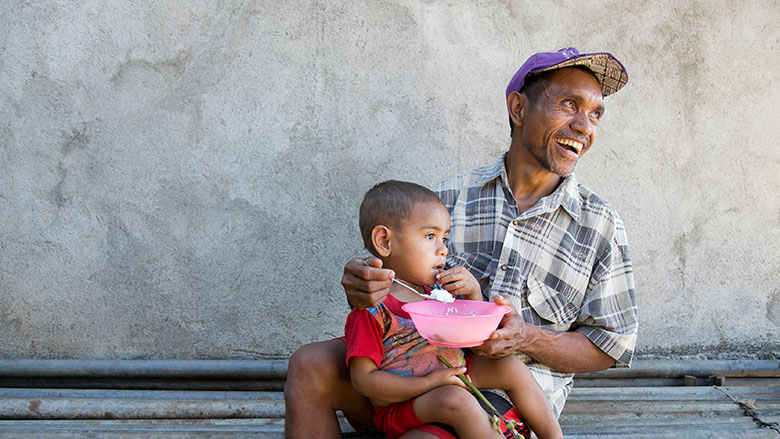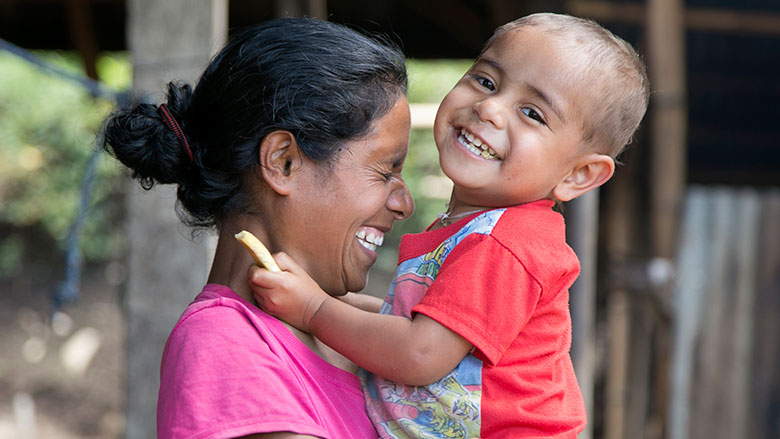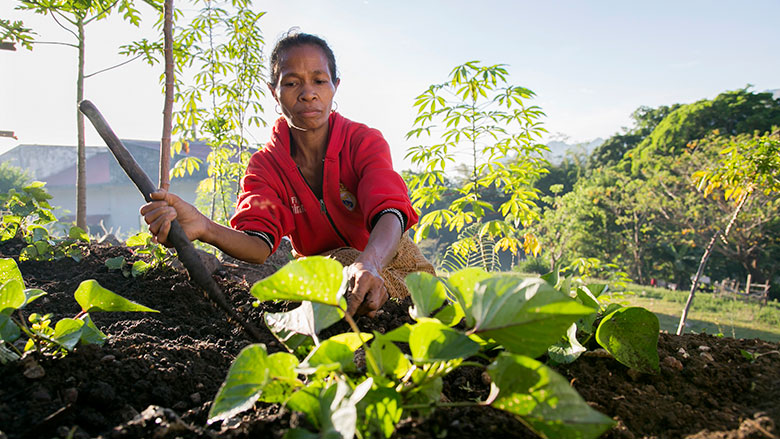Challenge
Since gaining independence in 2002, Timor-Leste has made progress in building peace and establishing institutions, yet malnutrition -- particularly maternal and child undernutrition -- is the single greatest contributor to premature death and disability in the country and presents a significant development challenge and a threat to Timor-Leste’s progress.
Timor-Leste has the third highest stunting prevalence in the world, with over half (50.2%) of all children under-five classified as stunted in 2013. In addition, nearly one in three (63.2%) of children and 2 in 5 (39.5%) women age 14-60 were anemic.
Malnutrition in pregnancy and during childhood often leads to stunting and there is a critical window of opportunity during the first 1,000 days of life – from conception through to a child’s second year – where health and nutrition education can have the greatest impact on reducing the life-long consequences of malnutrition.
In the districts of Baucau and Viqueque, young mothers reported a basic understanding of nutrition, however many are not able to access nutritious foods. Families also reported cultural and social issues as barriers to improving nutritional practices. A lack of clear, factual information on what makes a healthy diet, combined with taboos regarding what pregnant women should or should not eat, makes it difficult for mothers to know what is best for their families’ health.
Most households also rely on the crops they produce for their meals, and often these crops are not diverse enough to meet core dietary needs. Many families simply do not have the money to buy nutritious foods, or for many, markets where diverse produce is available are too far away to access.
Approach
- The project is working with communities in several districts of Timor-Leste to educate young mothers and pregnant women on the importance of nutrition and healthy lifestyles.
- Across Timor-Leste, families have largely rice-based diets. The project focuses on helping families add a variety of local, affordable vegetables and proteins into their meals through agriculture support and by explaining the importance of healthy eating, especially during pregnancy and early childhood. Families are learning how to grow nutrient-rich vegetables to pair with the rice and corn that are staples of family meals.
- Locally-based Community Nutrition Facilitators lead mother’s groups across participating districts, teaching families the importance of protein, micronutrients, and vitamins for improved nutrition and health. Together, the groups grow and cook with nutrient-rich foods, including red beans for protein, leafy greens for iron and a new variety of orange flesh sweet potatoes for vitamin A to enrich staple diets and improve health.
- In addition to these mother’s groups, the project provides home visits to families to reinforce these messages and share knowledge with the larger family. Families are shown how to plant and maintain basic home and community gardens and are provided with training on how to grow diverse nutrient-rich crops to supplement their diets.
- Throughout the program, families are given information on food groups, vitamin-rich foods, breastfeeding and complementary feeding, all of which is reinforced using visual tools, practical activities, role-play and games.



